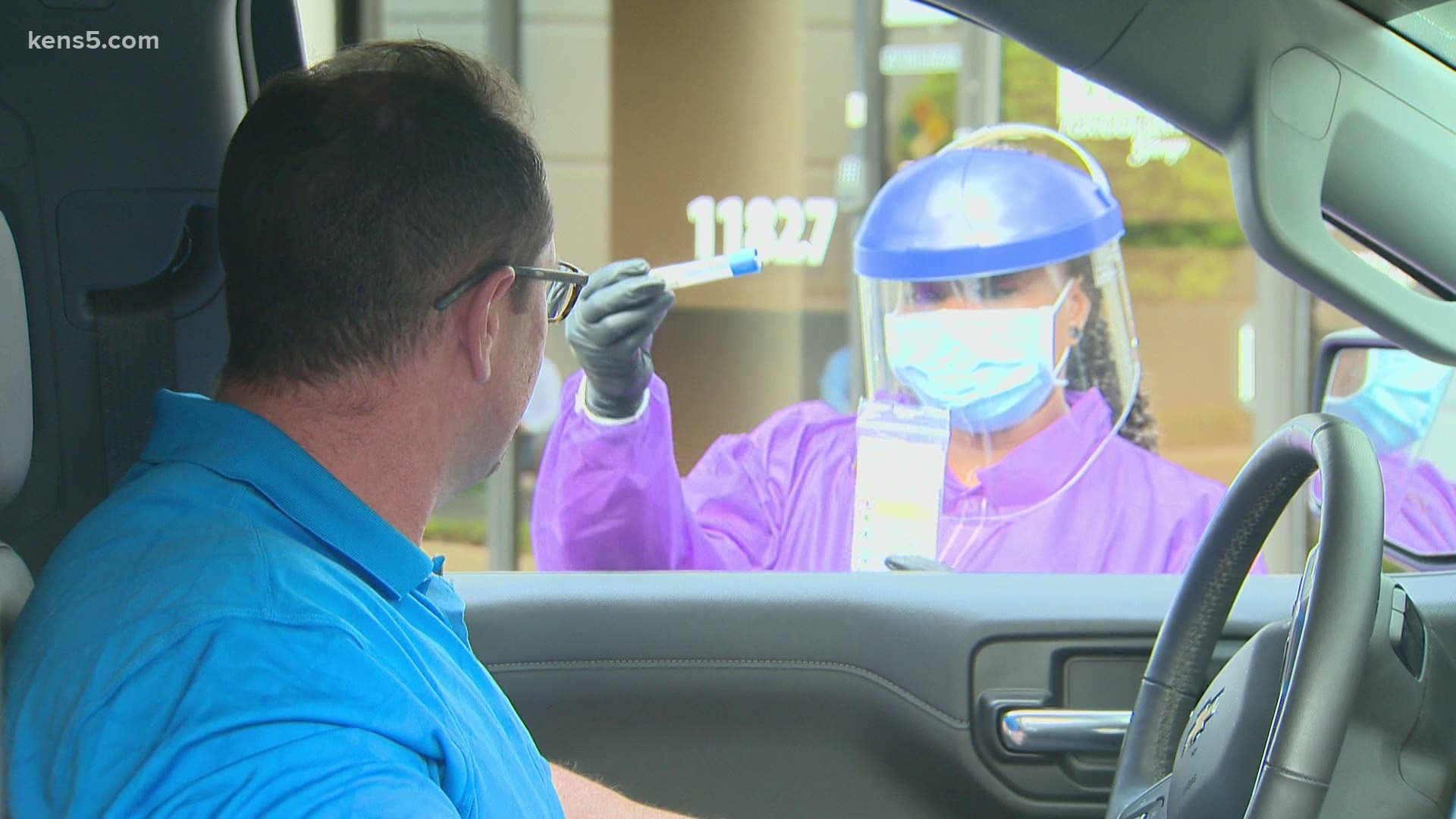SAN ANTONIO — Starting Tuesday, October 13, the city will expand its hours for COVID-19 testing for people who are asymptomatic.
The no-cost testing sites do not require an appointment. People can walk up and will be tested on a first-come first-served basis.
The City of San Antonio and Community Labs, a non-profit organization, are partnering to provide the testing.
People who have not experienced any symptoms, but want to get tested for coronavirus, can go to the Cuellar Community Center, located at 5626 San Fernando Street on the city's west side or Ramirez Community Center, 1011 Gillette Boulevard, on the city's south side. Both locations will be open from 10 a.m. to 2 p.m. from Tuesday, October 13 through Friday, October 16.
According to a press release, individuals "with or without symptoms will be able to use the City’s no cost test sites to access a less invasive nasal PCR tests at no cost to determine if they have contracted COVID-19."
The FDA has approved nasal PCR tests for testing of asymptomatic individuals.
Health officials want to remind the public that after being tested for COVID-19, it is important to:
- Assume you are positive until you get your test results back.
- Stay at home in a room away from other people and use a separate bathroom if you can. Isolate yourself from others, including not going to work until results are received. If you are facing hardships to finding a safe place to isolate from vulnerable people in your household, contact 311.
- Identify close contacts. A close contact is anyone you spent 15 minutes or more with and were within six-feet distance. If you test positive, call people or places that you had close contact with. Let them know that they were exposed and that they should quarantine for 14 days. To identify a close contact, work backwards until two days before you showed symptoms.
- Monitor symptoms at least twice a day. If you have a prolonged fever, difficulty breathing or chest pains, call your medical provider or 911 if there is an emergency.
- Wash your mask daily and be sure to only touch the ties/ear loops as the inside and outside may be contaminated.
The city also has an online self-screening tool - but it, of course, does not replace medical care if a person is feeling ill. A healthcare provider should be visited if symptoms worsen or if underlying medical conditions such as diabetes, high blood pressure, lung disease or heart disease is a factor in the person’s medical history.

